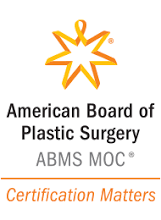Can hair loss be reversed?
In a world where appearance plays a significant role in our self-confidence and how others perceive us, hair loss can be a distressing and confidence-dampening experience. However, with advancements in medical science and technology, the dream of reversing hair loss is no longer an elusive fantasy. The Center For Hair Restoration is at the forefront of this transformative journey, offering hope and solutions to those grappling with hair loss. In this blog, we delve into the question many ask: Can hair loss be reversed?
Understanding the Root Causes of Hair Loss
Before exploring the possibilities of hair restoration, it’s crucial to comprehend the underlying causes of hair loss. Hair loss, medically known as alopecia, can be attributed to a variety of factors, including:
- Genetics
- Hormonal imbalances
- Medical conditions
- Stress
- Lifestyle choices
The most common type of hair loss, androgenetic alopecia, is often hereditary and caused by genetics and hormonal influences. This hair loss typically follows a distinct pattern, affecting both men and women.
Options For Hair Restoration
While complete restoration might not always be possible, significant progress has been made in the field of hair restoration, providing individuals with various options to regain their hair and confidence:
- Medications: FDA-approved medications like minoxidil and finasteride have succeeded in slowing down or halting hair loss progression in specific individuals. Minoxidil is available over the counter and is applied topically, while finasteride requires a prescription and works by inhibiting the hormone responsible for hair loss.
- Platelet-Rich Plasma (PRP) Therapy: This therapy involves extracting a small amount of the patient’s blood, processing it to concentrate platelets, and then injecting the enriched plasma into the scalp. This treatment has gained popularity due to its potential to stimulate hair follicles and promote growth.
- Low-Level Laser Therapy (LLLT): LLLT uses red light to stimulate hair follicles and improve their function. It’s a non-invasive procedure that can be performed in a clinical setting or even at home with specialized devices.
- Hair Transplantation: Hair transplantation has evolved significantly, offering natural-looking results. Techniques like Follicular Unit Transplantation (FUT) and Follicular Unit Extraction (FUE) involve harvesting hair follicles from donor areas and transplanting them to places with thinning or no hair.
- Advanced Surgical Techniques: Innovations in surgical techniques have led to less invasive procedures, reduced scarring, and quicker recovery times for patients undergoing hair transplantation.
- Lifestyle Changes: A holistic approach to hair restoration includes adopting a healthy lifestyle, managing stress, and making nutritional choices that support hair health.
Regain Your Hair With Hair Restoration Pittsburgh
While a complete reversal of hair loss may not always be achievable, significant progress has been made in hair restoration. The Center For Hair Restoration offers a range of innovative treatments, from medications and therapies to advanced surgical techniques, helping patients address their hair loss concerns. The journey toward hair restoration is personal, and it’s essential to consult with experts who can guide you through the available options and tailor a treatment plan that suits your unique needs. Remember, with determination, the right approach, and the expertise of professionals, the dream of reversing hair loss is no longer out of reach.















